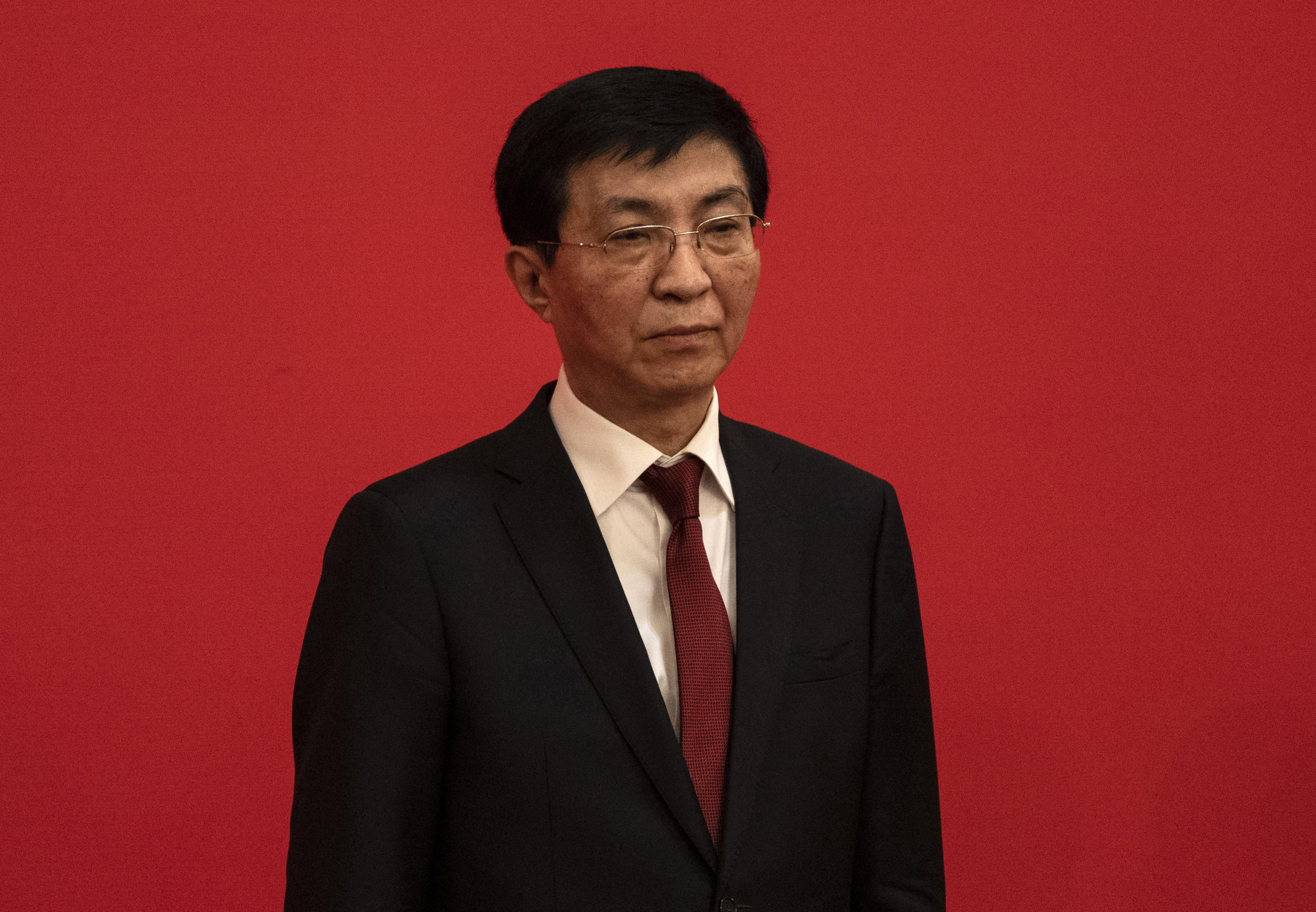The Most Influential Man in China
Wang Huning’s diagnosis of the West’s dysfunction has shaped 30 years of Chinese policy.

There's a distinct difference between power and influence. The former allows an individual, organization, or government to impose its will on others. The latter, meanwhile, is a far more subtle way of affecting the behaviors and attitudes of others. Xi Jinping is certainly the most powerful man in China, but he’s not the most influential.
That title goes to Wang Huning, a man who has been shaping Chinese policies for decades, long before Xi rose to prominence. Without his work, China probably wouldn't be the powerhouse it is today. Without his unique insights, China probably wouldn't pose such a grave threat to the United States.
A relative unknown outside China, Wang has been the country's top ideological theorist for more than 30 years. In December, the 67-year-old was one of just two top officials reappointed to join Xi’s Politburo Standing Committee, the decision-making body of the Chinese Communist Party (CCP). If Xi is the enforcer, Huning is the wily alchemist, a Machiavelli-like figure, more comfortable in the shadows than the spotlight.
Referred to as guoshi (“teacher of the state”) by Chinese netizens, Wang advised both Jiang Zemin, the general secretary of the CCP from 1989 to 2002, and Hu Jintao, the general secretary of the CCP from 2002 to 2012. Today, China’s teacher is busy educating Xi Jinping.
The work of Alexis de Tocqueville, the French philosopher and political scientist who spent 10 months in the U.S. studying the merits and potential pitfalls of democracy, had a profound impact on Wang. In 1988, at the age of 32, Wang spent six months traveling across the U.S., identifying the many cracks in American society. In 1991, Wang published America Against America, an eye-opening book that describes both his time in the U.S. and what he discovered during his travels.
Like Tocqueville’s Democracy in America, America Against America is a dense offering, covering a number of topics, including the “commodification” of society, the decline of agriculture, the toxicity of partisan politics, the space race, the “invisible hands” pulling the strings of government, and the United States’s caste-like system, which, according to Wang, worked to pit the elites against everyone else. Other chapters cover think tanks, which Wang refers to as forms of “active intelligence,” as well as the “hidden crises” destined to plague the U.S. in the years to come. Some of those crises, noted the theorist, included the decline in family values, youths without genuine aspirations and respectable role models (“stray teens”), and the scourge of crime.
The book, more than 30 years old, still shapes the CCP’s views of the U.S. Why wouldn’t it? After all, U.S. cities are riddled with crime. As I have noted elsewhere, 11 of the world’s 50 most dangerous cities are located in the U.S. Across the country, millions of teens and preteens have aspirations of becoming social media influencers, not scientists, medical doctors, or astronauts. The U.S. now has the world’s highest rate of children living in single-parent households. The nuclear family is being replaced by the destructive experiments of sexual liberation; children grow up not knowing who their biological father is. The country is an utter mess—a mess that Wang, some 35 years ago, predicted.
Alarmed by what he saw, Wang suggested that a new authoritarianism was the only way to stop China from resembling the U.S. His proposed post-Maoist form of governance was a sort of enlightened autocracy—order, he emphasized, was desperately needed. In an essay written during his time in the U.S., Wang urged the CCP to instill “core values” like patriotism and loyalty in the people of China. A united China would thrive.
Subscribe Today
Get daily emails in your inbox
Wang’s emphasis on order, one assumes, has played a major role in Xi Jinping’s desire to crackdown on the country’s “sissy-men” and “opium for the mind,” otherwise known as video games. Haig Patapan, an academic who has studied Wang in great detail, told me that “China's turn away from liberalism” and its decision to double down on “'socialism with Chinese characteristics' as a counter to western ideology” have been fueled by his philosophies. Furthermore, added Patapan, a professor in Griffith University’s School of Government and International Relations in Australia, Wang’s increased emphasis on the relationship between strong social structures—including the nuclear family—and economic prosperity have actively shaped the policies of modern day China.
Wang Huning is starting to attract attention in the West—Palladium published a long feature on his career and thought in 2021, followed by The New Yorker in 2022—but substantive and coherent response to the problems that he identifies has yet to emerge. Our political leaders are still concerned with defending niche and destructive sexual practices instead of shoring up the national character, and our corporate elites are still pursuing ever-more refined forms of racial “equity” instead of building national wealth. It may be too late to correct our course.
Comments